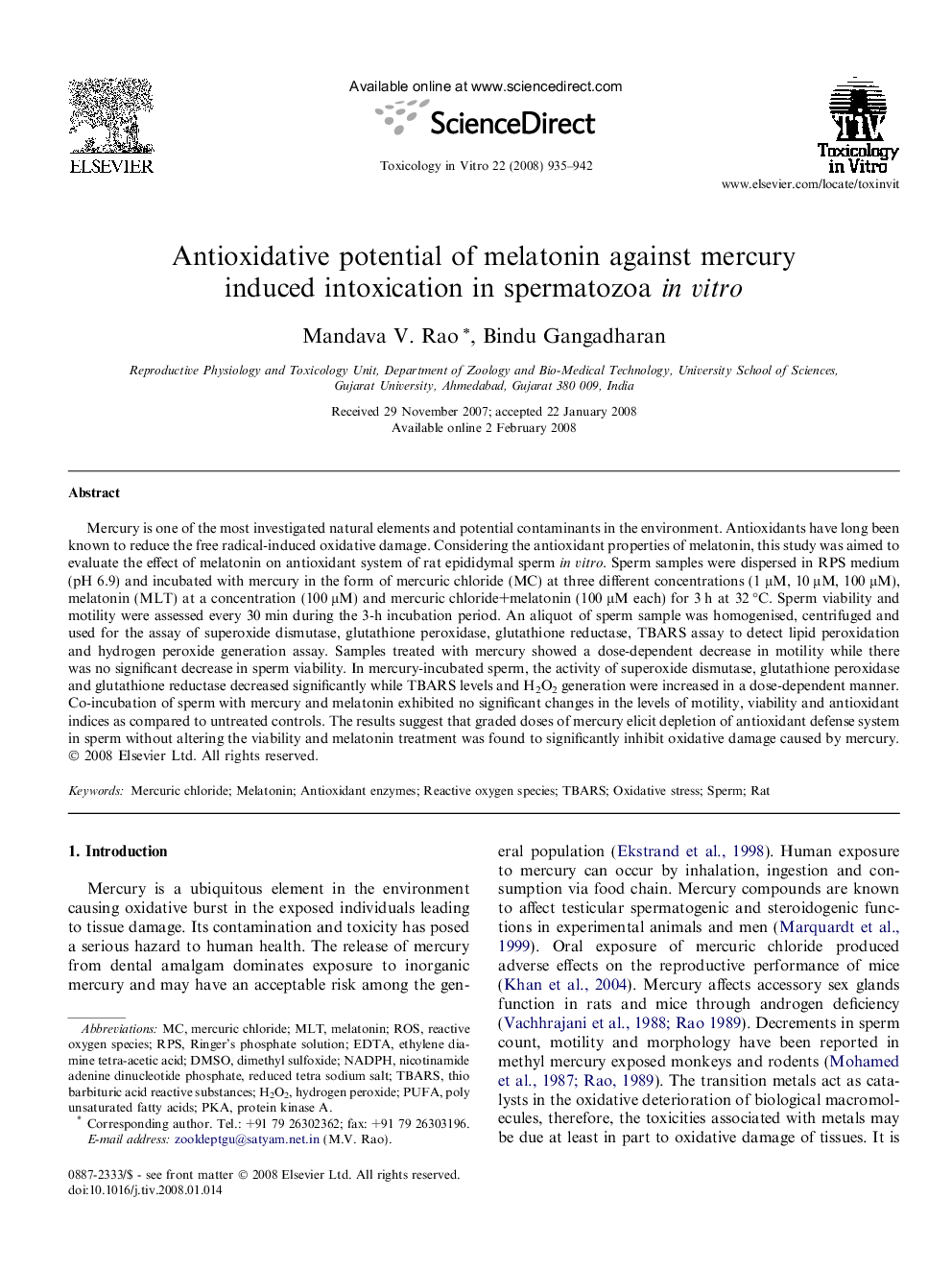| Article ID | Journal | Published Year | Pages | File Type |
|---|---|---|---|---|
| 2603382 | Toxicology in Vitro | 2008 | 8 Pages |
Mercury is one of the most investigated natural elements and potential contaminants in the environment. Antioxidants have long been known to reduce the free radical-induced oxidative damage. Considering the antioxidant properties of melatonin, this study was aimed to evaluate the effect of melatonin on antioxidant system of rat epididymal sperm in vitro. Sperm samples were dispersed in RPS medium (pH 6.9) and incubated with mercury in the form of mercuric chloride (MC) at three different concentrations (1 μM, 10 μM, 100 μM), melatonin (MLT) at a concentration (100 μM) and mercuric chloride+melatonin (100 μM each) for 3 h at 32 °C. Sperm viability and motility were assessed every 30 min during the 3-h incubation period. An aliquot of sperm sample was homogenised, centrifuged and used for the assay of superoxide dismutase, glutathione peroxidase, glutathione reductase, TBARS assay to detect lipid peroxidation and hydrogen peroxide generation assay. Samples treated with mercury showed a dose-dependent decrease in motility while there was no significant decrease in sperm viability. In mercury-incubated sperm, the activity of superoxide dismutase, glutathione peroxidase and glutathione reductase decreased significantly while TBARS levels and H2O2 generation were increased in a dose-dependent manner. Co-incubation of sperm with mercury and melatonin exhibited no significant changes in the levels of motility, viability and antioxidant indices as compared to untreated controls. The results suggest that graded doses of mercury elicit depletion of antioxidant defense system in sperm without altering the viability and melatonin treatment was found to significantly inhibit oxidative damage caused by mercury.
